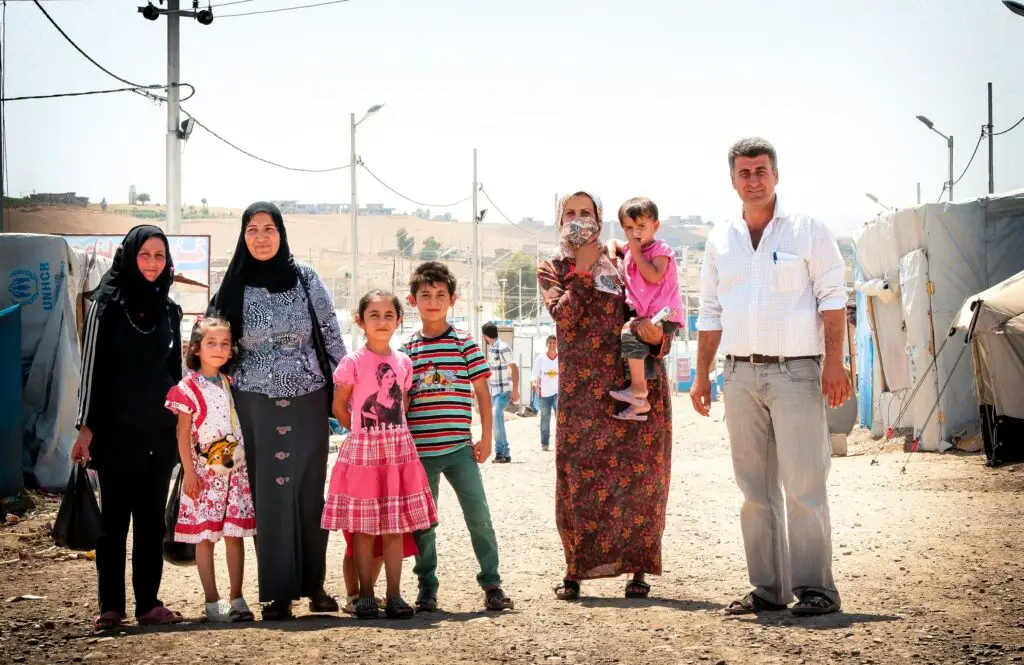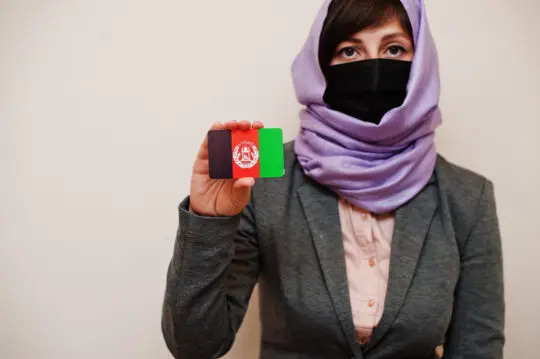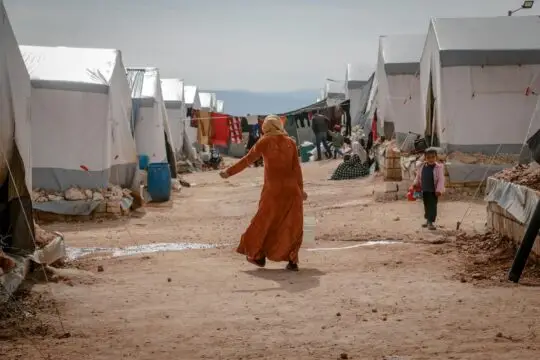Law for temporary Residence permit until 2028
The Greens' draft is entitled "Act to amend the Residence Act - Right of residence for Yazidis". It stipulates that Yazidi asylum seekers who entered Germany before July 31, 2025 can receive a residence permit until July 31, 2028 - even if they are currently unable to support themselves or have entered the country without a visa.
This is intended to give Yazidis the opportunity to fulfill the requirements for a long-term residence permit during these three years. After the first reading in the Bundestag, the draft will be referred to the committees, with the Committee on Internal Affairs taking the lead. This will be followed - probably in a few weeks' time - by a second reading and the final vote.
Background: Bundestag recognizes genocide
In January 2023, the German Bundestag recognized the crimes committed by the terrorist organization "Islamic State" (IS) against the Yazidi minority in Iraq as genocide. Around 10,000 Yazidi men were murdered, around 7,000 women and girls abducted, many of them enslaved and abused. More than 2,000 people are still missing today.
Although IS is considered to have been defeated militarily, the security situation in the Sinjar region remains dangerous and unstable, according to the Greens. Local militias, resurgent IS cells and regional conflicts are jeopardizing stability. Around 200,000 Yazidis are still living in Iraqi refugee camps with no prospect of returning.
Greens: Federal government is not fulfilling its protection mandate
In their motion, the Greens point out that Germany has taken on a special responsibility by recognizing the genocide. This has only been partially fulfilled so far: in 2023, only 53% of Yazidi asylum seekers from Iraq were granted protection status in Germany.
This situation leads to "collective legal uncertainty" and makes integration more difficult. Many Yazidis are currently living with a Tolerance permit, which places a heavy burden on their everyday lives. The parliamentary group criticizes the fact that this effectively undermines the Bundestag's original promise of protection.
Important: A Tolerance permit in Germany is not a Residence permit. It means that the person concerned is actually obliged to leave the country, but deportation is temporarily suspended.
How many Yazidis currently live in Germany?
The number of Yazidis living in Germany cannot be determined exactly, as religious affiliation is not recorded statistically. However, various organizations and the media estimate that there are around 200,000 Yazidis living in Germany today.
This means that Germany is home to the world's largest Yazidi diaspora. Many of them come from northern Iraq, particularly from the Sinjar region, which became the scene of genocide by IS in 2014.
A significant proportion of the Yazidi population came to Germany between 2014 and 2016 in the wake of the IS advance. Several federal states, including Baden-Württemberg, Lower Saxony and Schleswig-Holstein, set up special reception programs for particularly vulnerable Yazidi women and children.
The best-known of these programs - the Baden-Württemberg special contingent - enabled around 1,100 women and children who had survived IS captivity to enter Germany. Today, Yazidis live in almost all German states, with larger communities in Lower Saxony, North Rhine-Westphalia and Baden-Württemberg.
Deportation bans in several federal states
Several federal states - including North Rhine-Westphalia, Thuringia, Lower Saxony and Schleswig-Holstein - had already imposed temporary deportation bans on Yazidis in 2023 and 2024. However, these were only extended for a limited period of time and have since expired.
A nationwide ban on deportations has not yet been implemented due to a lack of agreement between the federal and state governments. According to the Greens, such a deportation ban is also not sufficient, as it only grants temporary protection but does not offer any permanent prospects of remaining.
Conclusion: How likely is it that the bill will be adopted?
Whether the draft will find a majority in the Bundestag is currently open - and difficult to assess. On the one hand, the issue enjoys broad moral support: the Bundestag already unanimously recognized the genocide of the Yazidis in 2023, and Germany is internationally regarded as a safe haven for religiously persecuted minorities.
On the other hand, the current migration policy of the German government under Chancellor Friedrich Merz (CDU) is characterized by stricter regulations. The coalition of CDU/CSU and SPD is focusing on stricter entry, asylum and repatriation rules, more consistent deportation practices and stricter border controls. Naturalization requirements are also currently becoming stricter again. In this political environment, it is considered unlikely that a humanitarian special status will find broad support in the government factions.
Overall, the law can only be implemented if it is approved by the CDU/CSU and SPD. It is unclear whether this will happen.











